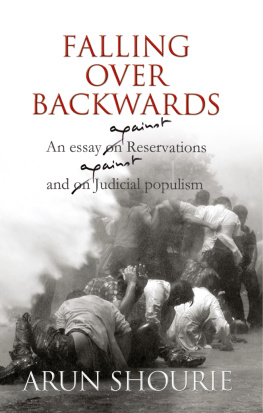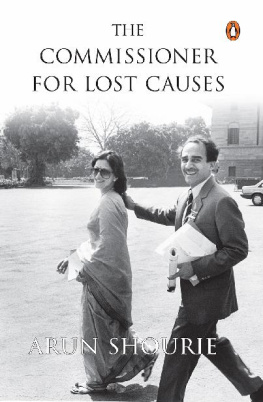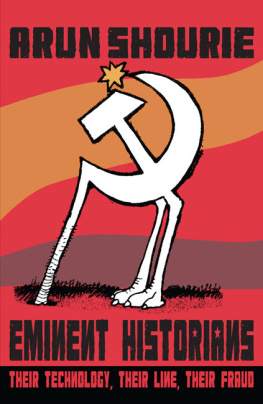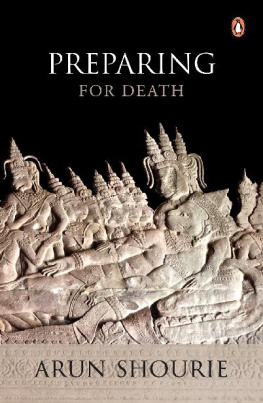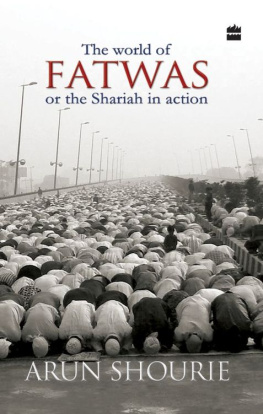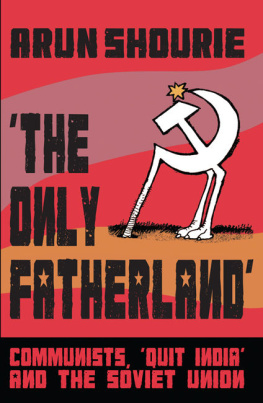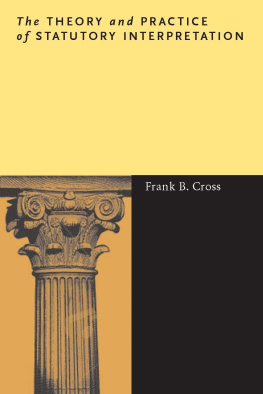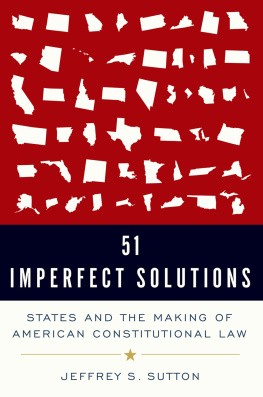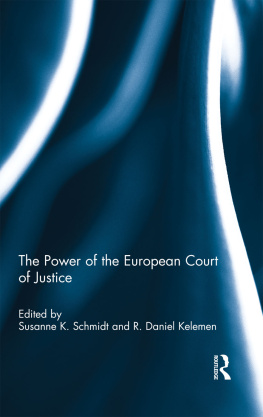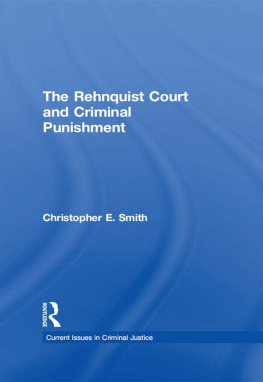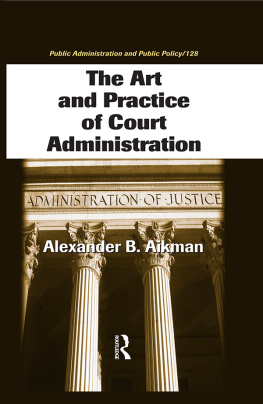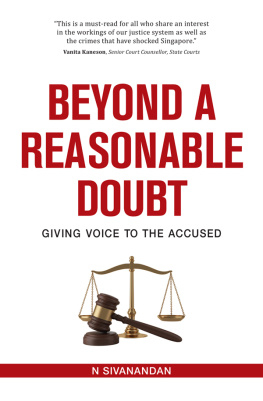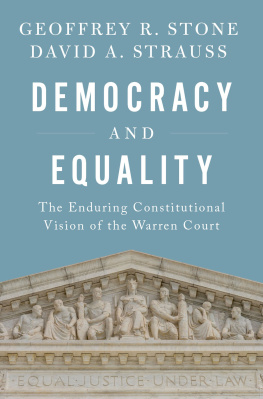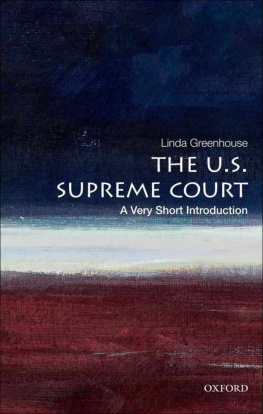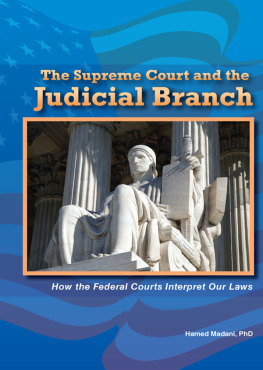Table of Contents
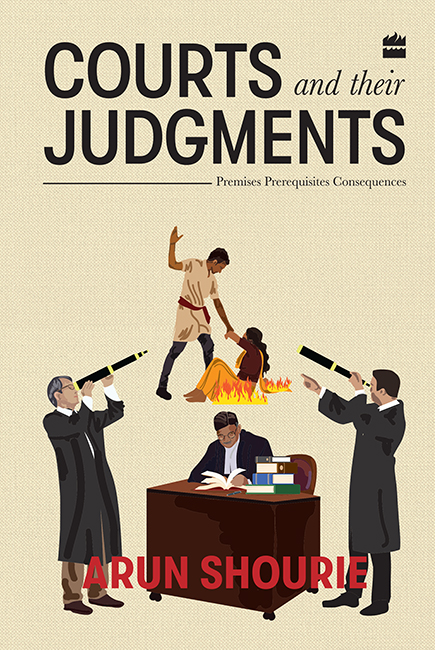
COURTS AND THEIR JUDGMENTS
Premises, Prerequisites, Consequences
ARUN SHOURIE

For our parents
For our Adit
For Anita
Taat maat guru sakha tu
Contents
W here one stands on an issue depends on where one sits that is invariably said with derision.
In fact, it is a good enough reason to change ones chairs from time to time not just ones job, ones profession itself. We then get to see things that have become so familiar as to seem stale, from unaccustomed, refreshing angles.
For years I have turned to the law and the courts as one would to a shield to thwart governments when they attempted to squat on what my colleagues and I were doing. I now happen to be in government.
That is how the subject of this book came to be selected.
Lawasia the Law Association for Asia and the Pacific is an important organization of judges, lawyers, teachers of law, representatives of Bar Councils and Law Associations, as well as law firms. It was founded in 1966. From among Indias distinguished lawyers, Mr F.S. Nariman and Mr Anil B. Divan have been its presidents. The Indian chapter of the organization was inaugurated in July 1999 by the chief justice, Dr A.S. Anand.
Last year the Indian chapter decided to institute a series of annual lectures.
The country councillor for India, Mr P.H. Parekh was so kind as to come over to say that they had decided to ask me to deliver the first lecture in this series. Like Mr Nariman, he is among the lawyers to whom I have had to often turn to ward off cases and the like that were instituted, among others, by governments.
It therefore seemed a good idea to put to work the vantage point that I have today by accident of being in government and look anew at the judgments and courts that I have so often invoked for protection.
The lecture was delivered in November 2000. Justice S.P. Bharucha, the senior-most judge of the Supreme Court, put all of us in his debt by presiding over the lecture. He made important remarks of his own. And also, with some sharp pins, punctured a few of the things that I had said!
This book is based on the lecture. In a few instances I have incorporated references to judgments that have been delivered subsequently.
But there is a caveat. While I may not have got an opportunity to see things from this angle but for being in government, what I said in the lecture and what is elaborated here is my opinion alone. It does not in any way reflect the views of government.
Quite the opposite, perhaps. The bulk of the book deals with judgments of the courts and the work and pronouncements of judges, of course. But one of the themes that runs through it is that the executive is as responsible as the courts for the state of affairs described here, that in many ways it is the one that is primarily responsible for the condition.
I do hope therefore that nothing in the book will be taken, even by inference, to represent the views of government.
E veryone who has been connected with the press, indeed every author in India, is indebted to our courts, in particular to the Supreme Court. They have been, the Supreme Court in particular has been our shield. They have enlarged, and again the Supreme Court in particular has widened the ambit of free speech in our country.
On several occasions I have turned to the courts for protection. At one time, when I was in The Indian Express, the then government had instituted and was pursuing through hundreds of officers from half a dozen enforcement and investigating agencies over 320 inquiries, investigations, cases against us. The courts, and, of course, the support of our readers, were our only dykes.
And what sturdy dykes they proved to be that government went, we survived.
But it is also true that sometimes I have had to watch helplessly as the courts could not be persuaded to do what seemed clearly within their power, what seemed to be manifestly mandated by law.
At The Indian Express we had been pursuing the Bofors bribes. The government of the time and the ruling party used hirelings to shut the principal edition of the paper, the one in Delhi. The workers and journalists are on strike, the government proclaimed. We rushed from the labour commissioner to police stations to government offices to courts: See, we are here. We are not on strike. We want to work. Just remove the police from the entrance and we will be able to start publishing the edition. Each authority would send us to the other.
We were set upon. Several were beaten up. The skull of one of my colleagues was split open. Six of my colleagues were burnt with acid. The toughs the ruling party had hired, and with even greater vigour the police, repeatedly prevented us from entering the building.
Violence is a crime in itself. No action was taken. That apart, there is a simple rule. We were being prevented by hirelings outsiders who had nothing to do with the paper and the police from entering the premises. Now, pickets are to remain at least 50 yards away from the entrance to the place of work. They are not to block employees who choose to work. Our repeated attempts to get the courts to enforce this elementary rule got nowhere.
The law against misusing courts to drag persons into vexatious litigation is just as clear. But, like many other authors, I have had to watch helplessly as courts have thought fit to take cases on board which, at least to a beleaguered author, seemed to be of a kind that deserved to be rejected at the threshold.
Lawyers in Delhi had been on yet another prolonged strike. Litigants were being put to much trouble. Many of them had waited for years for their cases to come up only to have the cases pushed into the indefinite future. It was also evident that only a clutch of lawyers was holding up the resumption of work in the courts. Several lawyers among them some senior advocates were roughed up, and that too within the precincts of the Supreme Court. I wrote an article about these goings-on. It was a mere description of the facts there was not even a pejorative word in it. Nor was it any exceptional piece; it was just a routine part of the weekly column I used to write at the time. Suddenly, one morning I read in the Hindustan Times that a court in distant Siliguri had issued a non-bailable warrant against me. I had received no intimation, to say nothing of any summons. I rushed there. Requested a local lawyer for help.
What had happened was that two young lawyers had filed a complaint that, as I had written against lawyers albeit against a strike by lawyers in faraway Delhi and, as they happened to be lawyers, they had been defamed. And so I should be tried for criminal defamation. The court had acted on that in the face of exceptions listed in the defamation section of the Indian Penal Code itself, in the face of judgments that class action of this kind is not permissible in defamation cases. Exception 1 to Section 499 provides, It is not defamation to impute anything which is true concerning any person, if it be for the public good that the imputation should be made or published. Whether or not it is for the public good is a question of fact. Exception 3 provides, It is not defamation to express in good faith any opinion whatever respecting the conduct of any person touching any public question, and respecting his character, so far as his character appears in that conduct, and no further; apart from the fact that no imputation had been made about any person in the article, advocates have specifically been held to be an indeterminate class, and so for anyone to file a class action on their behalf was impermissible ab initio.


